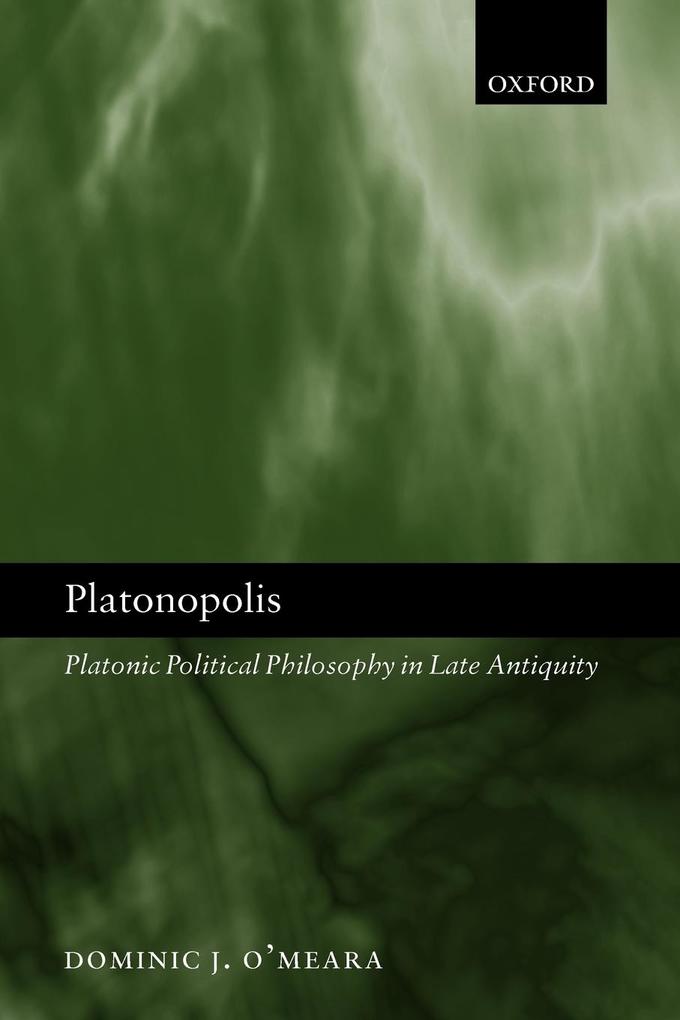Conventional wisdom suggests that the Platonist philosophers of Late Antiquity, from Plotinus (third century) to the sixth-century schools in Athens and Alexandria, neglected the political dimension of their Platonic heritage in their concentration on an otherworldly life. But Dominic O'Meara presents a revelatory reappraisal of these thinkers, arguing that their otherworldliness involved rather than excluded political ideas, and he reconstructs for the first time a coherent political philosophy of Late Platonism.
Inhaltsverzeichnis
- INTRODUCTION
- 1: The Two Functions of Political Philosophy
- 2: Neoplatonist Philosophers in Time, Place, and Social Context
- NEOPLATONIC POLITICAL THEORY RECONSTRUCTED
- I. THE DIVINIZATION OF SOUL
- 3: Divinization in Greek Philosophy
- 4: The Scale of Virtues
- 5: The Scale of Sciences
- 6: The Curriculum
- II. THE DIVINIZATION OF STATE
- 7: Philosopher-Kings and Queens
- 8: Political Science: Legislative
- 9: Political Science: Judicial
- 10: The Political Function of Religion
- 11: The Limits of Political Action
- PLATONOPOLIS IN CHRISTIANITY AND ISLAM
- 12: Eusebius and Augustine
- 13: Ideals of Church and State in the Sixth Century
- 14: Platonopolis in Islam: Al-Farabi's Perfect State
- Conclusion
- Appendix I: Themistus and Neoplatonic Political Philosophy
- Appendix II: Notes on a Platonist Rhetor: Sopatros 3
- Bibliography
- Index










